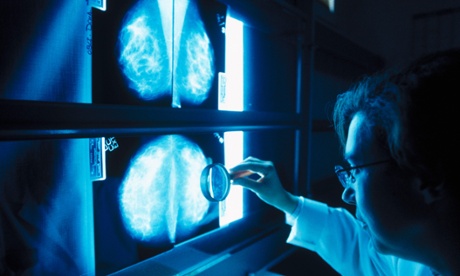Women living in affluent areas are more likely to have breast cancer detected early, according to new research.
A study published on bmj.com today found that those in the poorest fifth of women were over 50% more likely to be diagnosed with advanced breast cancer.
The survey of more than 12,000 women registered on the Northern and Yorkshire Cancer Registry and Information Service (NYCRIS), found that breast cancer was advanced in 1,455 people.
Among those eligible for breast cancer screening programmes - women over 50 - the differences between the most affluent and most deprived were even greater.
Conducted by a team of researchers from the University of Newcastle and the University of Leeds, the study found almost 11% of the more affluent group had advanced cancer compared with 16% in the most deprived group.
Jean Adams of the University of Newcastle, who led the research, said: "It seems to be that more affluent women are being diagnosed earlier. These women are more likely to take part in screening and that could be partly responsible for this pattern.
"It could be that having to take time off work or get someone to look after the children is preventing poorer women from going for screening. More affluent women are generally more likely to take part in things that are good for them, whether that is exercise or breast screening."
More than 40,000 people are diagnosed with breast cancer every year in the UK, and the lifetime risk for breast cancer in women is one in nine.
Researchers said that educational programmes needed to be targeted at women from poorer backgrounds to help close the inequality gap.
Although the reasons behind the differences are not clear, Ms Adams said efforts to close the gap should focus on particular groups rather than on blanket coverage.
Ms Adams added: "The next step is to get a way of encouraging women from deprived areas to attend for screening and looking out for symptoms. This might be targeting them at work or, if they don't work, then finding other ways of getting the message across."
· Scientists have developed a new technique for women with breast cancer which reduces some of the side-effects of surgery.
Under current methods, in order to find out whether the cancer has spread, doctors remove all under-arm glands as well as the cancerous tumour. However, this is unnecessary in two-thirds of cases, according to new research by the University of Wales College of Medicine.
Researchers found that by removing just the main gland from the under-arm - the sentinel node - specialists can tell whether the cancer has spread. With the new technique, doctors are able to locate the main gland that drains directly from the tumour by using a small dose of radioactivity.
It is expected the Department of Health will fund a training programme for doctors to learn the technique.






